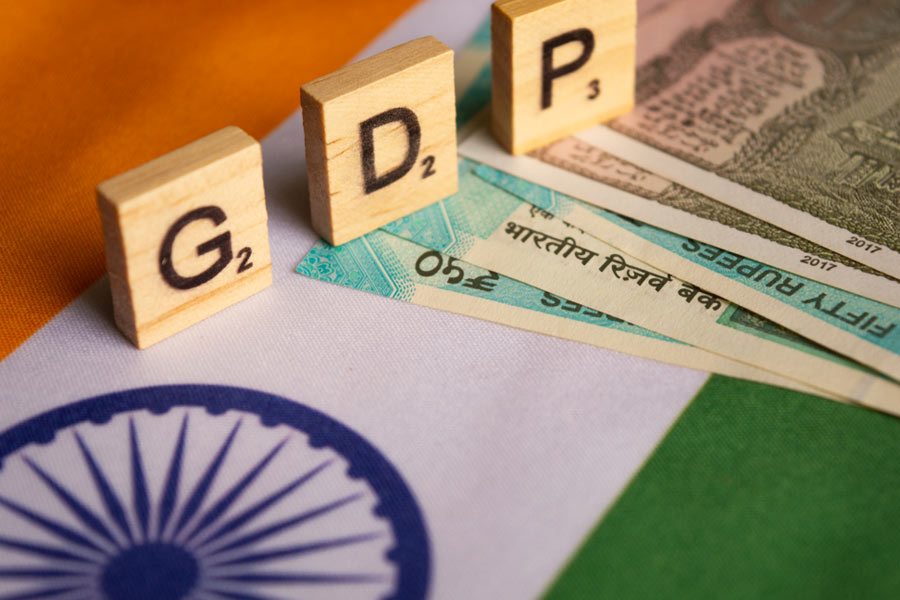Watching the results of the presidential election of the United States of America brings back memories from nearly half a century ago when, as a wide-eyed nineteen-year-old, I’d reached my college campus in Vermont in the autumn of 1979. I’d read lots of books and comics, seen a few Hollywood movies, and listened to a fairly wide range of popular American music so I did know a few things, but I had no gauge of how little I actually knew about the American people. Going through American magazines in the big USIS Library at the corner of Chowringhee and S.N. Banerjee Road, or reading novels and poems by Saul Bellow, Joseph Heller, Sylvia Plath or Theodore Roethke or listening to Bob Dylan and Frank Zappa, I’d formed a picture of the US as a place full of highly-talented people who were plugged into the world at a level I could not begin to imagine. Yes, there was racism, cruelty and great violence, yes there was monumental cynicism and apathy — a lot of these great artists showed in their work exactly how dark America could be — but I somehow imagined it would take time before I came across small pockets of these negative qualities.
Despite having almost memorised “Maggie’s Farm”, Dylan’s searing song-portrait of rural/small town America, I wasn’t prepared for what was about to hit me. Compared to many other rural American states, Vermont was a benign place: heart-stoppingly beautiful; the natural beauty perhaps making the people slow-moving and kind; the absence of people of colour, especially South Asians, (by my count, excluding me, there were probably eleven desis in the whole state) perhaps contributing
to the warm and generous exchanges I had with local people. All this shifted once the Iranian hostage crisis escalated in my first term — a period that overlapped with the final days of Jimmy Carter’s presidency. Driving to town in a friend’s pick-up truck, we gave a lift to two girls hitching on the highway. When they asked where I was from, I jokingly replied, “Why, I’m from Ai-ran.” The girls scrambled out at the first stop sign and actually ran. My friend and I laughed our guts out but the laughter was short-lived. For me, the joke lay in the fact that I couldn’t imagine anyone mistaking me for an Iranian. The joke on the world was that most Americans had no idea where Iran was located on the globe and that every brown male, from fair to dark, was a potential Iranian and hostage-taking enemy.
Things almost got nasty during the winter break when I found myself in a bar in Washington DC, sitting next to a table where two big-built young men with crew cuts were having a drink with their girlfriends. The table suddenly went quiet; one of the girls leaned over to one of my American companions and asked him something; I couldn’t hear the question or the reply but suddenly the table erupted in shouts and cheers — “India! F***in’-A! Awrright!” Presently a round of beers was delivered to us, courtesy our neighbours. After the group left, my friend told me I had come this close to being beaten up because these off-duty Marines thought I was Iranian; luckily one of their girlfriends had thought of confirming before the action began
Across that long winter break, I stayed with various college friends and their relatives; as it turned out all of them White and living in small towns and semi-rural areas in Virginia, New Jersey and upstate New York. After the elections in November 1979, I’d been baffled how Americans could jettison a decent, intelligent man like Jimmy Carter and replace him with this new Republican president-elect, this slightly dense, hoaky charlatan of a one-time B-movie actor. Across my travels in the winter of ‘79-80, I got some kinds of answer, though I remained aghast and flabbergasted; over the last forty-four years, my horror and bafflement at Americans’ propensity for putting absolutely the worst man in charge of their country have received regular top-ups.
What I encountered that winter were levels of insularity, ignorance, hard-wired arrogance, nationalist exceptionalism and racism baked in over generations that were startling for me. In personal interaction, these were civil and decent folk, generously hosting a strange foreign student who happened to be a friend of their college-going offspring or niece or nephew. These were mostly people educated up to a certain level, at least high school, and often with college degrees. Not all of them voted Republican, a few could actually locate Iran and India on a world map, some even accepted that perhaps the US had made some mistakes in Vietnam. And yet: Carter had to go because he was ‘weak’; America had to show people who was the boss because, well, we’re ‘the home of the brave and the land of the free’; I was alright, they obviously weren’t talking about me, but these local Black people, you know, they were getting out of hand with their criminal violence and the freebie-entitlement; if my hosts’ geography was weak, their understanding of history was non-existent or skewed into an unquestioning American hegemonist narrative — we’ve mostly been a force for the good and we have god on our side. The biggest and most kadva lesson I learnt was that for many Americans, the rest of the world was a blurred adjunct to the only real country on the planet, the US of A.
I may have been appalled by the stupidity and the shallowness of Ronald Reagan, with his sabre-rattling Cold War bluster, the patent lies about ‘trickle-down’ economics (for me, his famous ‘It’s morning again in America!’ always dovetailed into Bill Kilgore’s “love the smell of napalm in the morning!” from Apocalypse Now), the cruelty his administration showed in the first years of the AIDS crisis, and his minions’ dirty dealings in the Iran-Contra affair. However, far worse was to come in the shape of Daddy Bush and, especially, Dubya Bush. If people like me thought America had reached its political nadir with the re-election of George W. Bush, history, as always, was waiting to trump us.
In his column in The Guardian, Jonathan Freedland writes: “Fifty years ago, if three broadcast networks and a couple of east coast newspapers declared the president a crook, that president was finished... Now, the mainstream press can reveal the most damning evidence about Trump and... [h]is supporters either never hear those revelations — because they get their news from Trump-friendly TV and social media channels — or, if they do, they flatly dismiss them as lies. We truly live in the age of ‘alternative facts’... He [Trump] could do heinous things in office, or simply fail as president, and tens of millions of Americans would never know about it.”
The fact is, even forty-five years ago, millions of Americans were happy to bask in their ignorance. Despite living in the wealthiest country in the world, despite having access to a supposedly free and fearless media and the education to be able to understand and assess that media, Americans (not only Whites but also many East Asians, South Asians and Hispanics) have almost fetishised and celebrated their ignorance over the last five decades. Why? Perhaps because they feel they don’t have to give a damn, not about their fellow Americans, neither about their fellow planet-dwellers. The 75 million-odd who voted for Donald Trump this November chose a man reviled by not only a large number of Americans but also millions all over the world. They chose him despite evidence that he has committed crimes that drop bombs on every value they claim to believe in — ‘family values’, financial probity, loyalty to the nation and flag, the upholding of democracy and the lawful transfer of power. When the time comes for them to pay the bill for their choice, as it inevitably will, these Ostrich-Americans will no doubt burrow deeper into the sand to try and avoid paying, just as they’ve done in the past, but they will end up paying an even larger amount. This time around, it could well mean the end of their nation, their democracy, their precious and sacred union of states. As for the rest of us who are luckily not US citizens, ignorance is not a drug we can afford; we are going to need to be ever sharper, ever more alert, in constantly sifting out the truth from the morass of alternative facts.











